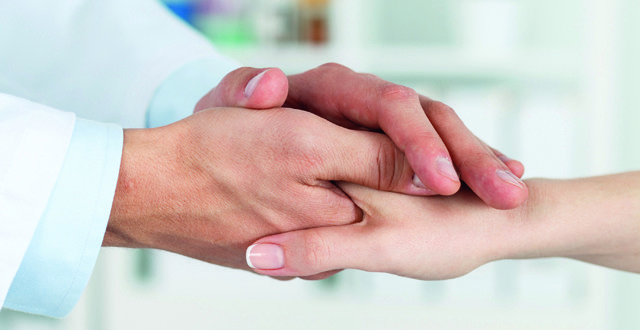Healthcare professionals are often perfectionistic and set high expectations but it is important to admit vulnerability and take time out when required, Prof Fiona McNicholas told Catherine Reilly during a recent media briefing organised by the College of Psychiatrists of Ireland
Healthcare employers need to be “proactive” in supporting healthcare workers through the additional stressors and risk of burnout posed by the Covid-19 crisis, according to Prof Fiona McNicholas, Guest Editor, Irish Journal of Psychological Medicine (IJPM) and Consultant Child and Adolescent Psychiatrist.
Speaking to the Medical Independent during an online media briefing to launch a special edition of the IJPM on the mental health impact of Covid-19, Prof McNicholas said healthcare employers have a responsibility to look after their healthcare workers and examine the support systems in place.
There must be “a shift in organisations being proactive at this time”, she said.
“There also needs to be recognition that you don’t need to maintain your stance as a ‘hero’; it is absolutely acceptable and important that you do admit to not coping and being vulnerable and taking time off.”
The psychiatrist also drew attention to another group of frontline workers — members of An Garda Síochána — who had been under “huge pressure” with the responsibility of policing new and urgent legislation.
“We are certainly aware the police themselves do feel vulnerable and there may not be that culture of being able to get access to mental health supports within their own organisation,” she added.
Prof McNicholas said data on potential increased stress and anxiety among healthcare workers in Ireland during Covid-19 was not yet available. There was not a sense that occupational health had seen significant increases but international evidence suggested a psychological toll on healthcare professionals relating to Covid-19.
“In terms of what we know from the data that came from SARS and MERS… frontline care workers or healthcare workers in these pandemics are not only faced with the anxiety of can they cope with what is coming… but there is also that personal anxiety from the infection and risk in the beginning that there wasn’t sufficient personal protective equipment (PPE) and that added additional layers of stress.”
She noted there had been a high prevalence of post-traumatic stress disorder among healthcare workers following the SARS outbreak. Prof McNicholas added: “Healthcare workers typically, by nature of their characteristics, are a little bit perfectionistic; they set high responsibilities on themselves to deal with issues. When they are faced with stress, they dive into work and they reduce the amount of other replenishing activities and leisure activities they do.
“They continue with this performance plateau for a while and then you see a huge performance cliff, and that is when patient safety issues start to come into the mix, and where actually then the patient population they are dealing with are also at risk by virtue of the healthcare worker not being able to adequately cope.” Organisations “have to anticipate that this is going to happen amongst us” and make sure they value healthcare professionals by providing additional supports and monitoring progress.
Prof McNicholas also noted the stressors on incoming medical interns and nursing students associated with entering the frontline at short notice. Also, community pharmacists had taken on new responsibilities and had been exposed to “perhaps unrecognised additional stress”.
The special edition of the IJPM, the journal of the College of Psychiatrists of Ireland, collates over 40 articles documenting the impact of Covid-19 on mental health in society and the delivery of mental health services during this time.
IJPM Editor Dr John Lyne commented: “The special issue brings a unique perspective to our understanding of how Covid-19 is impacting not only mental health services, but also many other elements of our society. There has been an overwhelming response from many mental health providers to contribute to this special edition, with the desire for rapid innovation and service development clearly evident throughout.”
He added: “The potential to improve population mental health in the months and years ahead by adequately resourcing mental health service reform cannot be understated. It is essential that policy-makers and healthcare leaders work collaboratively with frontline medical professionals, along with patients and their families.”













Leave a Reply
You must be logged in to post a comment.